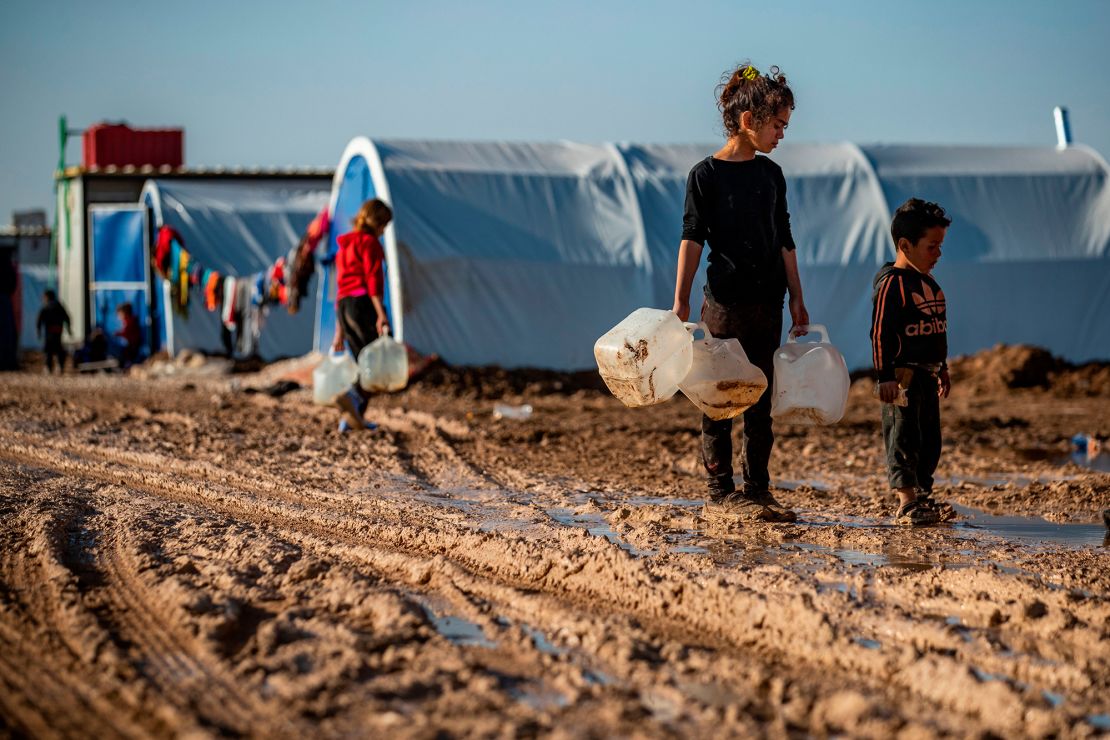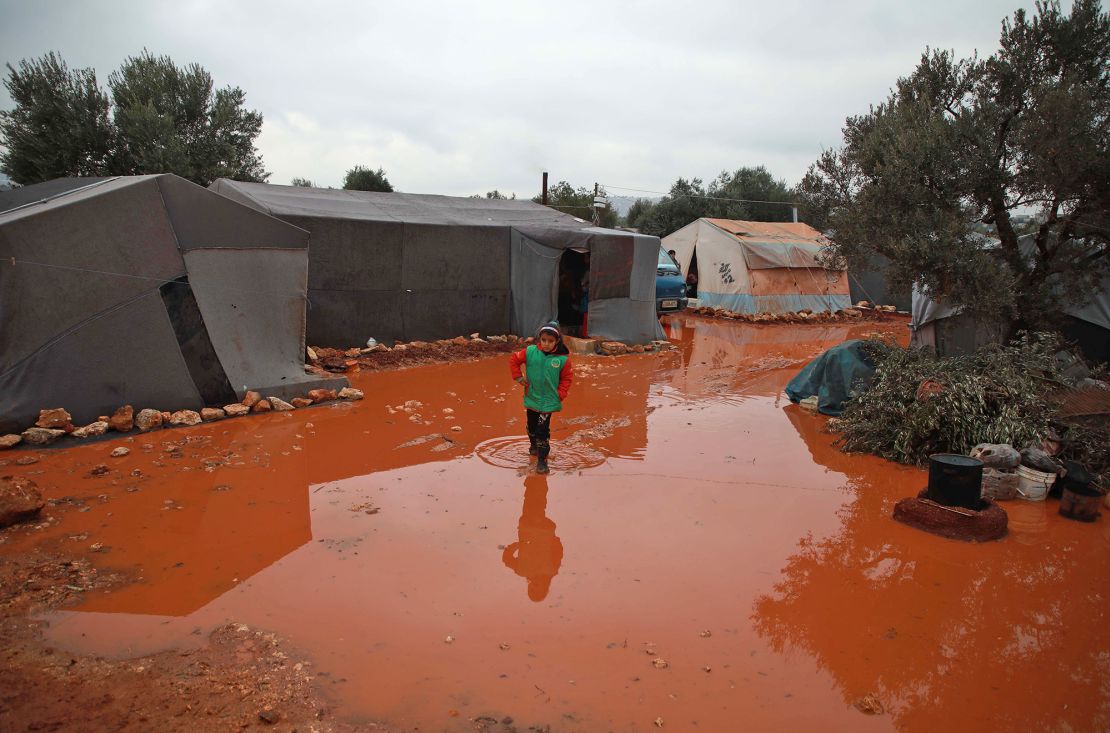Children are suffering in the latest escalation in the nine-year Syrian civil war as civilians face a bleak choice — leave for a life of misery in overcrowded makeshift camps or die.
Those are the only options as the Syrian government and its Russian backers pummel the more than 3 million civilians stuck in the last opposition enclave in northwestern Syria.
“The crisis in northwest Syria is turning into a child protection crisis of unprecedented scale. Violence over the past week has forced 6,500 children to flee every day,” said UNICEF Executive Director Henrietta Fore on Saturday.
UNICEF estimates that more than 300,000 have been displaced since December and that 1.2 million children are in desperate need.

Mohammad, an 11-year-old who loves to study and hopes to grow up to be a teacher, is one of those children. He was forced to flee with his family after a barrel bomb destroyed half of his home in the town of Saraqib in Idlib province. Now, he and the family live in squalid conditions in a muddy field with open sewage and barely any clean running water
He and his friends, some without proper footwear, play in the brown puddles of water to pass the time. Mohammad told CNN if he had a magic wand, he would transform his reality.
“I will get rid of the sewage water and fix the camp and won’t let the regime advance in any area or let airstrikes take place” he said.
Everything is in short supply including food, water, and medicine. Some families have found a place to live in public facilities like schools or mosques. Others live in buildings that are effectively unfinished construction sites.
“Many are simply living in the open air including in parks, amidst heavy rains and in the freezing cold. Access to the most basic services like health, water or sanitation is either very limited or non-existent,” Fore said.
Waves of displaced people
Airstrikes and a ground advance by the Syrian regime have triggered multiple waves of displaced people.
“We saw 200 Russian and Syrian regime airstrikes in the last three days, mainly against civilians,” said the US special envoy for Syria James Jeffrey on Thursday.
The situation in Idlib has been dire but the recent escalation is worsening conditions, according to Fuad Issa, founder of Violet, a humanitarian relief organization helping displaced people in Idlib.
“What’s different this time is that the areas that people are fleeing to are very crowded… the military operations by the Syrian regime are occurring very quickly, since a month we had five big waves of IDPs the last one was four days ago,” he told CNN on Saturday. “These waves that they are coming from different areas at the same time,” he said.
The recent violence has pushed people out of multiple towns along the main highways running through the opposition enclave. The Syrian regime announced the capture of the opposition-held city of Maraat Al Nouman on Thursday.

The town of Saraqib just a few miles north along the M5 highway is a ghost town. according to activists on the ground as civilians flee fearing the regime advance. To the west in Ariha City, strikes on a hospital, bakery, and residential neighborhoods killed at least 11 people on Thursday, according to the White Helmets, the volunteer medical rescue organization in Syria.
Nearly 800,000 displaced since April
These towns are part of a so-called de-escalation zone agreed to by Moscow and Ankara in 2018 and the two countries as recently as January 12 announced a ceasefire that has failed to end the violence. The Syrian regime and Russia deny targeting civilians and say they are targeting terrorists, pointing to the dominance of Hayat Tahrir Al Sham (HTS), a former al Qaeda affiliate, in the area.
Videos from the area show traffic jams with cars and trucks packed with entire households on major roads leading north toward the Turkish border. Turkey, which already hosts more than 3.6 million Syrian refugees, has said they cannot accept another influx and threatened military force against the Syrian regime and its allies.
“If the situation in Idlib does not normalize immediately,” Turkish president Recep Tayyip Erdogan warned in a speech on Friday, “Turkey will not hesitate to do whatever it takes including using military force.”
More than 790,000 people have been displaced since April with nearly half of those people fleeing their homes since December, according to the latest report from UN Office for the Coordination of Humanitarian Affairs.
Sitting outside a tent covered in blue tarp, 60-year-old Khadija Um Mohammad says that when airstrikes struck her house, everything she worked for in life vanished.
“Now my life’s work is gone. You see where we live now, we have nothing, I don’t even have money to buy bread today,” she said.





